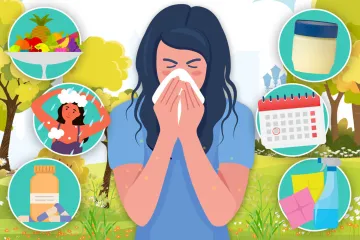Allergic reactions can range from mild annoyances to severe, life-threatening conditions. Understanding how to identify early symptoms, recognize common triggers, and properly manage reactions helps maintain health and safety. Allergy testing plays a role in identifying specific triggers, enabling you to take preventive measures. It’s also beneficial to know how to manage mild reactions and recognize when it’s time to seek advanced medical care.
Spotting Early Allergy Symptoms
The initial signs of an allergic reaction often vary depending on the allergen and individual sensitivities. Common symptoms include sneezing, nasal congestion, skin irritation, or watery eyes, which may resemble a cold or seasonal changes. Other signs, such as itching in specific areas, localized swelling, or minor skin rashes, can suggest that your body is reacting to an allergen.
One way to spot allergies early is by observing patterns. Symptoms that occur after exposure to certain foods, environments, or products typically indicate an allergy rather than an isolated occurrence. If symptoms persist or worsen after repeated exposure to a suspected allergen, allergy testing may be necessary to rule out more serious conditions.
Identifying Common Allergy Triggers
A variety of substances can cause allergies. Being aware of common triggers can help minimize exposure and manage risks effectively. Here are some typical allergens to watch for:
- Foods: Common culprits include nuts, shellfish, dairy, wheat, soy, and eggs. Even trace amounts can provoke a reaction in sensitive individuals.
- Environmental allergens: Pollen, mold, pet dander, and dust mites are typical triggers for seasonal and year-round allergies.
- Medications: Certain antibiotics, pain relievers, and vaccines may cause allergic responses. This varies significantly from person to person.
- Insect stings or bites: Bee or wasp stings, as well as spider bites, can lead to localized or systemic reactions in individuals with allergies.
- Chemical and skin irritants: Ingredients in personal care products, cleaning supplies, or cosmetics can provoke contact allergies.
Awareness of these triggers, along with careful observation of symptoms following exposure, can help pinpoint the source of allergies more effectively.
Managing Mild Allergy Reactions
Minor allergic reactions can often be managed at home by avoiding the allergen and taking steps like washing the skin or rinsing the eyes to remove irritants. Over-the-counter antihistamines, topical creams, cool compresses, and calamine lotion can help ease symptoms such as itching and swelling. If symptoms worsen or don’t improve, it’s beneficial to seek medical advice.
Recognizing Severe Allergy Signs
Severe allergic reactions, also known as anaphylaxis, require immediate medical attention. It’s helpful to recognize these symptoms so you can act swiftly. Key signs of a severe reaction include the following:
- Respiratory distress: Difficulty breathing, wheezing, or tightness in the chest.
- Swelling: Rapid swelling of the throat, tongue, or face that obstructs airways.
- Skin changes: Widespread hives or a severely itchy rash that quickly worsens.
- Gastrointestinal distress: Vomiting, diarrhea, or abdominal pain, especially after eating allergenic foods.
- Shock symptoms: Dizziness, confusion, or a sudden drop in blood pressure that may lead to fainting.
If a severe reaction occurs, call emergency services immediately and, if available, use an epinephrine auto-injector.
Know When to Seek Allergy Testing
Consulting a healthcare provider for allergy testing can be invaluable if you suspect allergies but are unsure of the specific triggers or experience persistent symptoms. Testing provides a clear understanding of your sensitivities, helping to guide effective management strategies. While mild reactions may not always require testing, recurrent or worsening symptoms should never be ignored, as early intervention and accurate diagnosis are beneficial for reducing long-term risks and improving quality of life. Contact a healthcare provider today to take the first step toward understanding and managing your allergies.
- Pedrovazpaulo Wealth Investment: Unlocking Financial Freedom Through Innovative Strategies
- EO Pis: A Comprehensive Guide to Environmental Objectives and Performance Indicators
- Premiumindo69: The Future of Digital Entertainment
- Macadamia Nut Milk: Health Benefits, Recipes, and Why It’s the Perfect Dairy-Free Alternative
- Hentquz: The Future of Productivity and Collaboration


